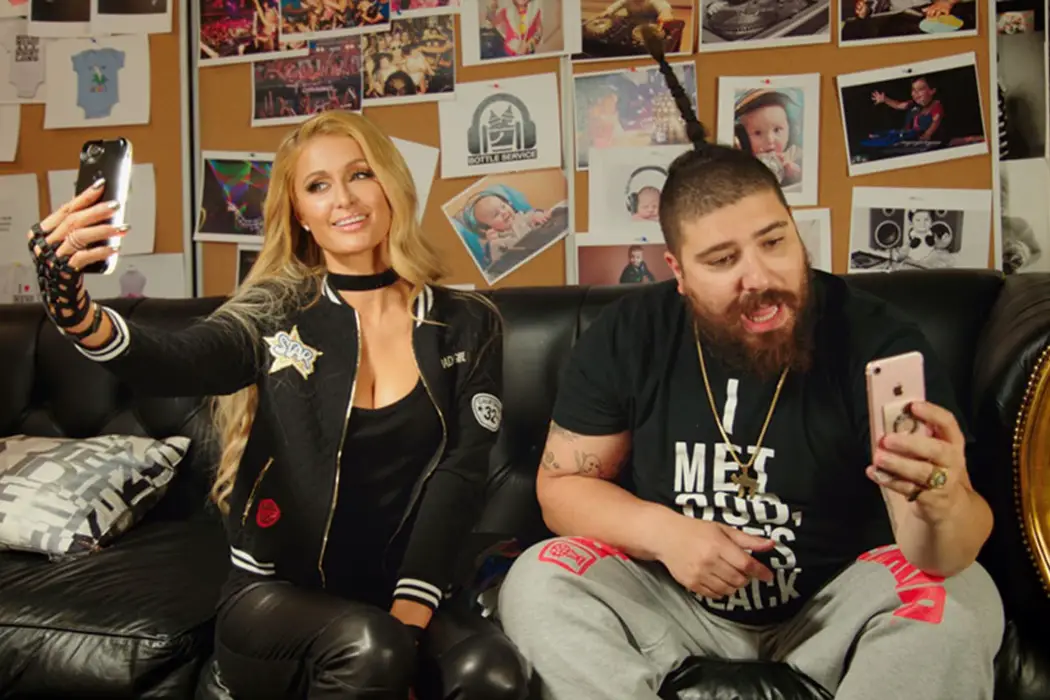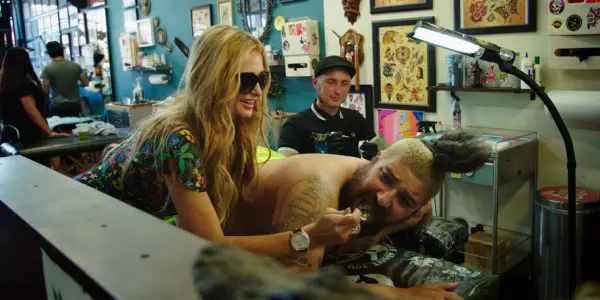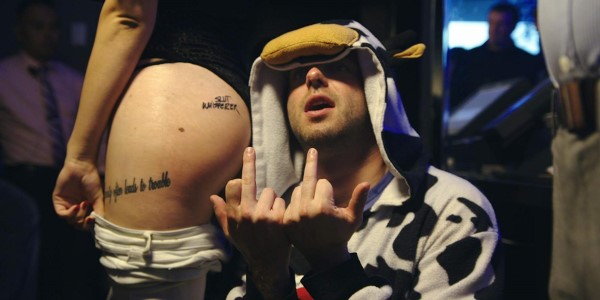THE AMERICAN MEME: Stretching The Fifteen Minutes Of Fame

Musanna Ahmed is a freelance film critic writing for Film…
There’s this idea that the famous people of the internet are doing what they do (maybe it’s posting risque pictures, maybe it’s sharing lowbrow humour) just for the attention. In Bert Marcus’ empathetic new documentary The American Meme, Emily Ratajkowski responds to this conjecture by asking, “What’s wrong with attention?”
The erasure of a filter
For Ms. Ratajkowski, the ability to directly connect to audiences is a fillip for positive influence, which in her case is fourth wave feminism. She says models used to have their words filtered through the media but now they can say what they want without a middleman. What the model, who blew up following a highly publicised appearance in a particular Robin Thicke video, didn’t expect was that her explosion in popularity would lead to blurred lines between her job and her life.

Emily, alongside DJ Khaled, Hailey Baldwin and Dane Cook, is one of the smaller, nevertheless significant, characters in the documentary which primarily studies the personal and digital lives of four Instagram-famous folk: Josh Ostrovsky, known as The Fat Jew, former Vine star Brittany Furlan, Kirill Bichutsky aka The Slut Whisperer, and Paris Hilton. All who have outlasted the “15 minutes of fame” moniker by successfully tapping into the internet’s perplexing indulgences.
Meet the memelords
Earlier this year, Lauren Greenfield explored similar territory in Generation Wealth, looking at the lives of filthy rich Americans. The ghost of Kim Kardashian floated through her documentary, providing the fillip for youngsters to be rich and famous in any way possible. For these social media “influencers”, Paris Hilton holds that distinction; Ostrovsky enthusiastically reminds us that Kim was Paris’ intern. According to the Fat Jew, the socialite set the gold standard for online celebrity marketing and self-branding.
What exactly attracts Paris’ legions of fans, affectionately referred to as the “Little Hiltons”, to her brand remains unknown. Some of them even compare her favourably to Jesus and Mother Teresa. Like Paris, the other subjects of this film are surprised at the colossal size of their followers, and the worship they receive. They can tell you how they got there but none of them – nor the filmmaker, who doesn’t transcend his analysis beyond interviews – can really get to the heart of why so many people enjoy their (inane) content so much.

Kirill Bichutsky has a theory for why one million people choose to follow his debaucherous posts on Instagram. For him, the racist, sexist, and all kinds of offensive jokes (he unashamedly comments on targeting the lowest common denominator), and lewd images, offer audiences a certain voyeuristic pleasure that they’re not willing to admit out loud. It’s basically saying and doing things that other people could never say or do, and getting off at how edgy someone can be.
Creating a monster
If the filmmaker doesn’t fully succeed in probing his subjects to learn to what makes them so appealing, he manages to separate from the “art” from the “artists”, humanising these individuals through in situ conversations. Self-hate, loneliness and depression are amongst the issues that they share in this personal space, speaking on the side effects of “creating a monster”: hate comments, invasion of privacy, people only paying attention to you for fame and money, etc.

There’s a segment in which the Fat Jew and Paris Hilton team up to promote apparel for baby DJ’s, a completely invented product that allows them to demonstrate their influence. Their connections to big media outlets can cause such fake news stories to go viral, exhibiting both the positive and negative power they have in their circumstances. Could they get people interested in such a ridiculous proposition? Certainly. Could they also inspire people to vote in elections or promote progressive ideals à la Emily Ratajkowski’s feminism? It’s very possible.
The American Meme: Conclusion
The American Meme is on the side of these absurdly rich and sad folks, in harmony with their struggles of blurring the line between job and lifestyle after needing to put on an act all day. There’s a struggle in inviting our sympathy by design: should we really feel sorry for these people who’ve come so far by posting such trivial content (especially considering the controversial ones)?
Separating the human being from the celebrity opens up a longer avenue for empathy, though the film may have equally worked if it took the schadenfreude route. The American Meme is a fascinating close-up on the lives of memes and the confounding value they have in the digital world.
What did you think of The American Meme? Let us know in the comments below.
The American Meme was released globally on Netflix on December 7, 2018.
Does content like this matter to you?
Become a Member and support film journalism. Unlock access to all of Film Inquiry`s great articles. Join a community of like-minded readers who are passionate about cinema - get access to our private members Network, give back to independent filmmakers, and more.
Musanna Ahmed is a freelance film critic writing for Film Inquiry, The Movie Waffler and The Upcoming. His taste in film knows no boundaries.













